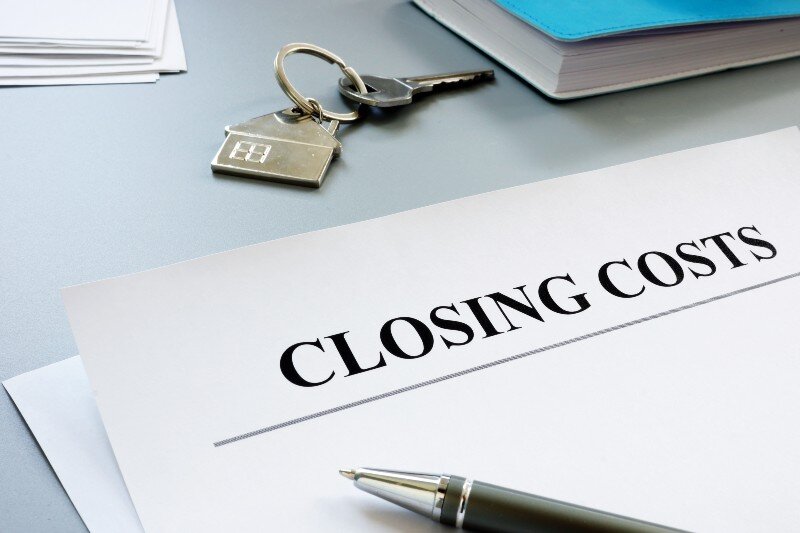
Are you looking to complete a home sale in Wisconsin? If so, you will need to determine the closing costs you’re bound to pay by the closing date. A few estimated closing costs for sellers include prorated property taxes, transfer taxes, a real estate agent commission fee, and recording fees.
You will also likely need to cover real estate attorney fees and appraisal fees after an appraiser determines your home’s value. To complete the real estate transaction, you’re also likely required to have a home inspection. The buyer may cover the home inspection fee, but sellers may also pay for it to incentivize a skeptical buyer.
Along with possible seller concessions, the seller’s closing fees may include paying escrow fees to an escrow company. To learn more about the different types of closing costs and whether the buyer or seller covers certain fees, keep reading. Let’s get started!
Different Types of Closing Costs
Closing costs cover a variety of services and paperwork requirements when buying a real estate property and applying for a mortgage loan from a lender. For instance, it covers the commission fee of the real estate agent who helps you find home buyers and complete the home sale.
Homeowners amid the home selling process will need to cover the costs of a title search to ensure a clear title. Home buyers, however, will need to pay for the home appraisal as part of their closing costs.
Another major part of seller closing costs is the 5 or 6 percent of the real estate agent commission fees. That percentage relates to the total home sale price. If you sell your property for $300,000 and your realtor fee is 6 percent, you’ll have to pay a commission fee of $18,000 on closing day.
That fee covers the buyer’s agent commission cost as well as the seller’s agent price. Other closing costs when selling a typical single-family home include:
- Loan origination fees
- Home loan application fee
- HOA fees up to your closing date
- Credit report fee
- Underwriting price
- Mortgage points
- Real estate lawyer payments
- Transfer taxes
Buyers and sellers tend to split closing costs, but you can expect to pay as much as 6 percent in closing costs based on the home’s purchase price.
Now, who generally covers the majority of the closing costs? We will answer that question below.
Who Typically Pays Closing Costs
Who pays the closing cost in WI? Both the home buyers and sellers cover portions of the closing cost.
Yet, what is the difference between the seller and buyer closing costs? That may depend on your specific real estate transaction as well as the region you’re in. Talk with your listing agent to determine the amount of your closing cost and whether you should negotiate seller concessions.
The buyer closing costs will surely cover everything related to the mortgage lender and the mortgage loan. That may include the down payment for the new home and other mortgage payments outlined in the Closing Disclosure form. Buyers get that form from their mortgage lender.
Other common closing costs for a first-time home buyer include the home appraisal fee and a home inspection cost. Furthermore, both the buyers and sellers pay prorated property taxes depending on when the transfer of the homeownership takes place.
The 2019 Tax Cut and Job Act created a $10,000 cap on state and local income tax deductions, including property taxes. Homeowners’ association fees also need to get paid by the seller when homeownership hasn’t been transferred yet. Once the house sale is complete, the buyer takes on HOA fees.
Furthermore, buyers will need to pay for private mortgage insurance upon closing if their down payment reached less than 20 percent. In addition, the buyers will have to pay for title insurance to the lender to cover potential costs associated with title claims.
Lastly, the buyers need to pay for the homeowner’s property insurance to have coverage for any potential future damage to the house.
Yet, the sellers also cover some closing costs. Sellers are likely to have fewer expenses on closing day, but their total amount may end up higher. The biggest expense for the sellers is the real estate agent commission fee, which involves a 6 percent closing cost of the home’s total purchase price.
Sometimes, sellers cover the title insurance policy for the buyer as part of their seller concessions. Further, sellers may want to cover concessions like appraisal inspections, real estate attorney costs, mortgage discount points, and property taxes.
Can the Buyer Pay Closing Costs
The home buyer does pay a good portion of the closing costs. These costs amount to anywhere between 2 and 5 percent of their loan amount. Yet, sometimes, the buyer can get the seller or lender to cover portions of these closing costs.
Many of the closing costs for the buyer amount to transferring the title to their name, appraising the home’s value, and applying for a home loan. The typical closing costs that the buyer will cover include the following:
- Title fees covering the title search and title insurance
- The appraisal fee, which costs anywhere from $300 to as much as $1,000
- The origination fee, which amounts to 1 percent of the home loan
- Discount points to buy a lower mortgage interest rate
- Escrow fees to cover homeowners insurance premiums and property taxes
- Mortgage insurance costs, in certain instances
Furthermore, the home buyer is required to bring the down payment to closing day. Further, earnest money put into escrow when the buyer makes an offer on the house will be put toward the down payment. The escrow company will use that money on the closing date.
The buyers may also find third-party fees they need to cover upon closing. These specific closing costs are:
- Recording fees the local government charges
- Real estate attorney fees
- The home inspection cost
- HOA transfer fees in communities governed by a homeowners’ association
- Credit report fee
- Survey fee

How To Calculate Closing Costs into Your Home Value
Home buyers can calculate their closing costs to amount to anywhere from 1 percent to 5 percent of their home purchase price. Therefore, for a house that costs $400,000, you can expect to pay closing costs ranging from $4,000 to $20,000.
For a more precise amount, you may want to enter your costs into an online closing costs calculator. The buyer’s final closing costs will also depend on the size of the down payment, the mortgage lender’s requirements, and even the region of the real estate property.
The appraisal fee is likely to reach anywhere from $300 to $500, while escrow fees range from $300 to $1,000. The home inspection fee will generally range from $300 to $500 as well. The homeowner’s insurance premium costs anywhere from $400 to $1,000 per year. A survey fee to assess property lines may cost about $400 for the buyers.
The information outlined above should help you calculate closing costs when buying a home.
Average Closing Costs on Property in Wisconsin
Understanding the costs of selling a house is essential if you don’t want to end up in debt. You will have to budget the average closing costs when selling your Wisconsin property, especially if you also need to buy a new home and get a new mortgage loan. Here, you will learn the value of the average closing costs in Wisconsin.
In the state of Wisconsin, origination fees and other third-party fees during closing average around $1,817. However, that amount doesn’t take on the costs of the title search, title insurance, discount points, taxes, and escrow fees. Generally, closing costs take on 2 or 3 percent of the home sale price nationally.
Since the median home value in Wisconsin reaches $187,100, your closing costs may reach as much as $5,613. Along with that, you’ll likely need a downpayment that reaches 20 percent of the home sale price. The amount for the downpayment may reach $37,420 on average.
Between the downpayment and the other closing costs, expect to pay an average of $43,033 on closing day in Wisconsin. Buyers can lower their closing costs by seeking homes with seller concessions.
Conclusion
Now, you should know the estimated closing costs for a seller in Wisconsin. Look through the information above to calculate your closing costs when buying or selling a home. As a seller, you will likely need to cover the 6 percent of realtor commission fees.
However, you can bypass the entirety of the real estate agent commission fee if you sell your property under a For Sale By Owner (FSBO) process to cash home buyers in Idaho, New York, Florida, or Wisconsin.
Best of all, you can sell a house fast in Kuna if you work with real estate investors or cash buyers, as they don’t need to wait on a mortgage approval. We buy houses Boise homeowners adore, so call us as soon as possible.
